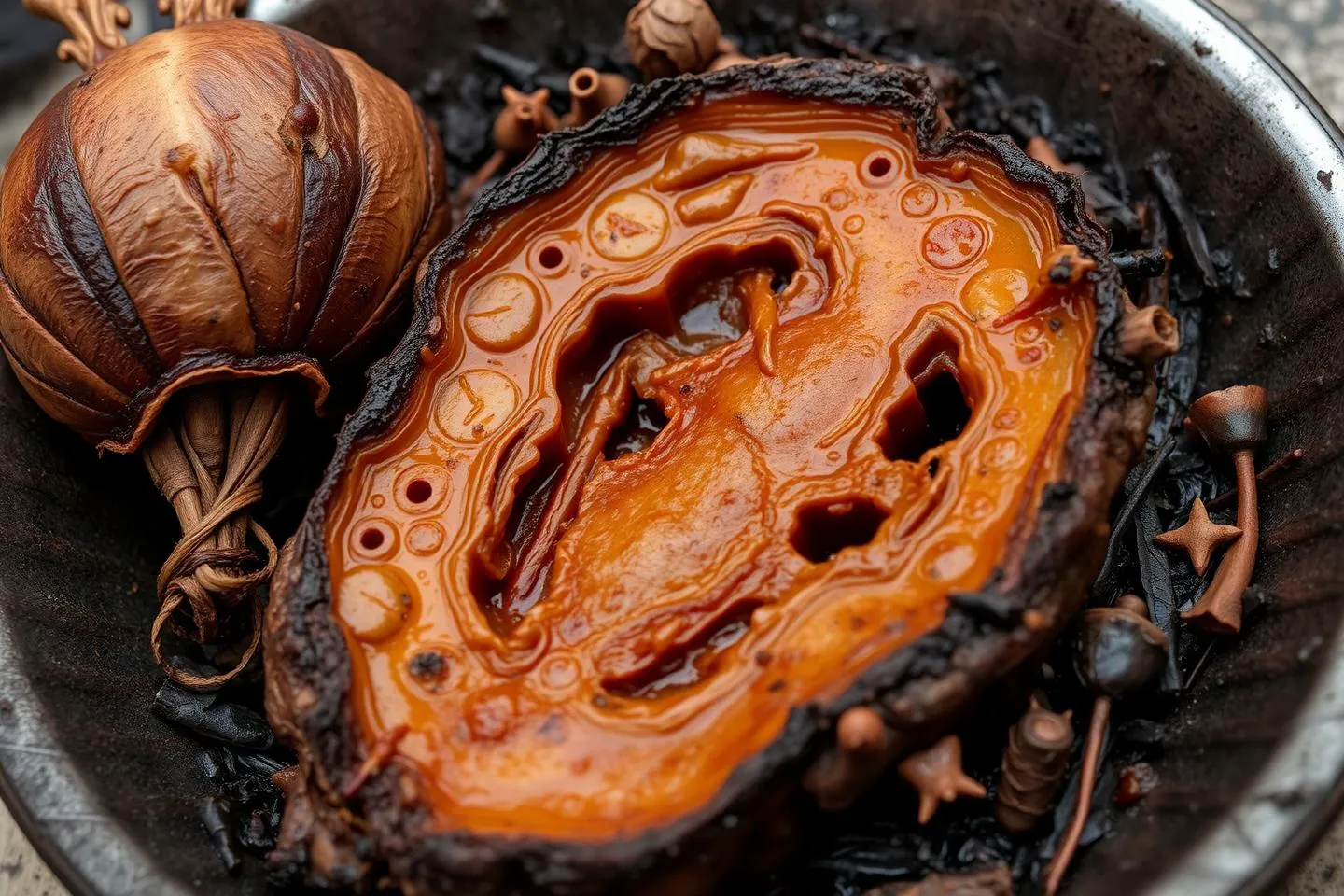The rotten food spiritual meaning delves into the deeper insights we can derive from something most consider unpleasant. Decay is not just a sign of spoilage; it carries profound spiritual lessons about life, transformation, and renewal. By exploring these themes, we can uncover the hidden messages that rotten food may hold for us.
Unveiling the Symbolism of Decay
Decay is a natural cycle of life and death, deeply embedded in various spiritual traditions. When we encounter rotten food, we are reminded of the impermanence of physical existence and material possessions. Everything in life, including our bodies, relationships, and even our dreams, is subject to change and decay.
This concept is significant because it teaches us that nothing lasts forever. The transformative aspect of decay leads to new growth, both literally and metaphorically. In nature, rotten food becomes compost, feeding the soil and allowing new plants to flourish. Similarly, in our lives, experiences of loss or failure can pave the way for new opportunities and personal growth.

The Language of Senses: Smell and Sight
The unpleasant odor of rotten food can symbolize disregarded emotions or neglected issues in one’s life. Just as we may avoid the smell of decay, we often ignore feelings that need our attention. The smell serves as a reminder that we cannot turn our backs on our emotional health.
Visually, rotten food presents a range of color changes and textures. These transformations can carry significant implications for interpreting spiritual messages. For example, the greening of mold may suggest that hidden issues are coming to light, urging us to confront what we have neglected.
Different cultures perceive the smell of decay in varied ways. In some traditions, it is seen as a harbinger of change or a premonition of transformation. Embracing this perspective can help us view rotten food not just as waste but as a signpost pointing towards necessary change in our lives.
Lessons from Spoilage: Understanding Abundance and Scarcity
The duality of abundance and scarcity is evident in food spoilage. When we throw away rotten food, it can reveal underlying fears or unrecognized blessings. Perhaps we fear scarcity, worrying about not having enough, or we may take our abundance for granted, leading to waste.
Reflecting on the experience of throwing away food can lead to insights about gratitude and the appreciation of sustenance. It invites us to consider how we value what we have and how we can be more mindful in our consumption. By acknowledging the lessons from spoilage, we can cultivate a deeper appreciation for the food that nourishes us.
Moreover, rotten food serves as a reminder of the importance of mindful consumption and environmental responsibility. By understanding the impact of our choices, we can contribute to a more sustainable world.
The Transformation of Energy: From Waste to Wisdom
Everything possesses energy, even rotten food. This energy can teach us valuable lessons about transformation. The decomposition process serves as a metaphor for personal growth through hardship or challenges. Just as food breaks down to nourish the earth, our struggles can lead to profound personal insights.
Practices such as composting exemplify spiritual acts of returning waste to the Earth. Composting allows us to see that even what seems useless can foster new life. This cycle of decay and renewal can inspire us to embrace our challenges, knowing they can lead to growth and wisdom.
Spiritual Symbols of Decay and Renewal
Various symbols associated with decay and renewal carry significant spiritual meanings. Here’s a look at some of these symbols:
| Symbol | Spiritual Meaning |
|---|---|
| Mushrooms | Fertility, transformation, and the cycle of life |
| Bones | Mortality, reminders of the past, legacy |
| Dying Plants | Endings, rebirth, and the potential for new beginnings |
| Maggots | Change, transformation, cleaning out the old |
| Mold | Hidden issues coming to light, importance of awareness |
These symbols remind us that decay does not exist in isolation. It is a part of a larger cycle of life that emphasizes renewal, growth, and the importance of facing our truths.
Embracing the Gifts of Imperfection
Accepting imperfection, including the presence of decay, can lead to greater self-acceptance. When we acknowledge that life is filled with flaws and challenges, we open ourselves to the possibility of growth. Embracing vulnerabilities can teach us valuable lessons about resilience and adaptability.
Reflecting on how rotten food might serve as a catalyst for personal growth is essential. Each experience of decay—be it in physical belongings, relationships, or our own selves—offers opportunities to learn and evolve. By accepting that imperfection is a part of our journey, we can cultivate a deeper understanding of our life experiences.
In conclusion, the rotten food spiritual meaning invites us to explore the deeper insights behind decay and transformation. By reflecting on the symbolism of rot, the messages from our senses, and the lessons of abundance and scarcity, we can gain a richer understanding of ourselves and the world around us. Embracing the gifts of imperfection allows us to navigate life’s challenges with wisdom and grace.
